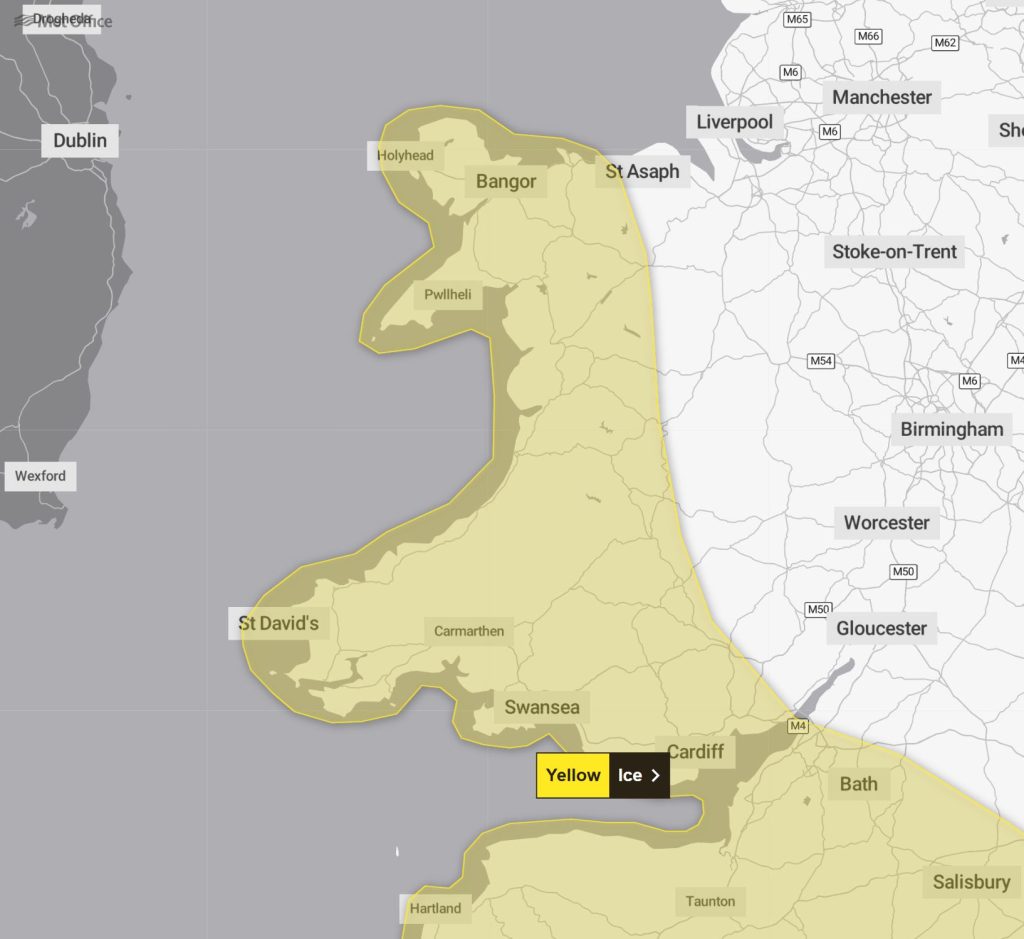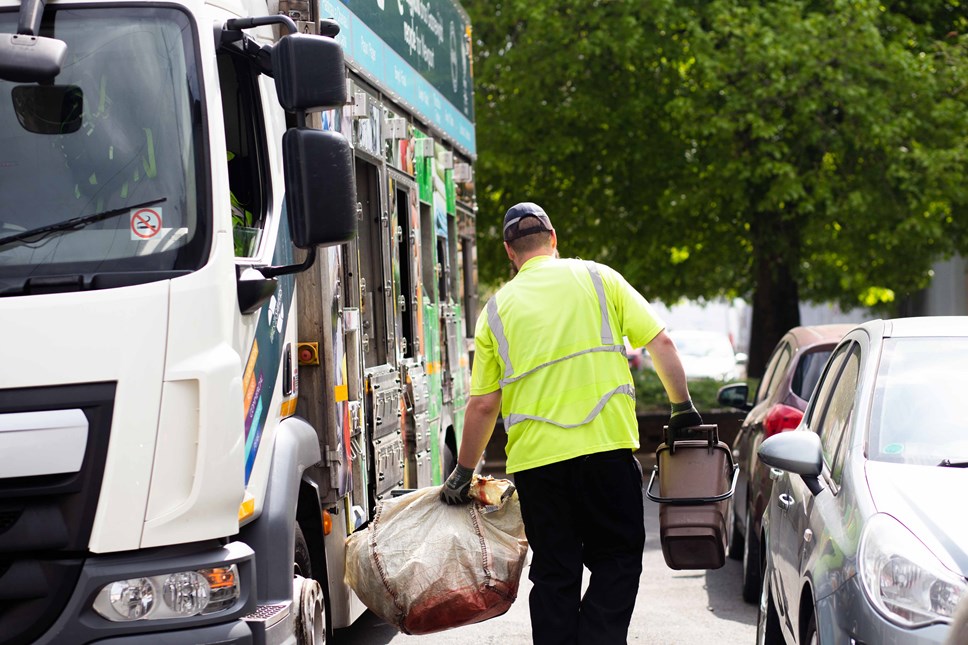Climate
Marine Energy alliances propel Wales towards net zero ambitions

- Marine Energy Wales and UK Marine Energy Council Join Forces to Champion Marine Industry Growth
IN A LANDMARK move that underscores their unwavering commitment to advancing the marine industry in Wales and the broader United Kingdom, Marine Energy Wales (MEW) and the UK Marine Energy Council (MEC) have officially inked a Memorandum of Understanding. This pivotal agreement solidifies their collaborative efforts to bolster marine energy, playing a pivotal role in Britain’s secure and cost-effective transition towards achieving Net Zero.
This momentous pact is anticipated to serve as a catalyst for identifying synergistic opportunities and forging collaborations, with a particular focus on the development of tidal stream and wave energy.
Tidal stream technology, which capitalizes on the gravitational interplay between the Earth, Moon, and Sun, represents a reliable and entirely predictable renewable energy resource. Already, it has contributed over 70 gigawatt-hours of electricity to the UK grid, sufficient to power more than 25,000 homes for an entire year. Recent renewable energy auctions have resulted in the allocation of resources to four successful projects in Wales, marking a trajectory towards deploying over 25 megawatts of tidal stream capacity by 2028.
Wave energy, often deemed the world’s largest untapped energy source, is estimated by the Intergovernmental Panel on Climate Change (IPCC) to possess an annual global production potential of 29,500 terawatt-hours. This astonishing capacity could supply clean electricity to more than 500 million households worldwide. In Wales, visionary companies such as Bombora and Marine Power Systems are leading the charge in developing potent wave energy converters and exploring the integration of wave and wind devices.
The recent triumph of tidal energy projects in the latest Contracts for Difference (AR5) auction has breathed new life into the technology’s prospects. However, organizations like MEW and the MEC remain steadfast in their call for sustained, unwavering, and predictable revenue support from governments to nurture the industry’s growth.
MEW and MEC are now collectively urging the government to maintain a dedicated funding reservoir for tidal energy technologies in forthcoming auction rounds.
With the signing of this groundbreaking agreement, MEW and MEC have committed to the following objectives:
- Champion the case for renewable energy deployment in Wales and the UK by actively engaging with stakeholders and dismantling obstacles faced by developers.
- Cultivate a robust supply chain capable of supporting all facets of renewable energy endeavors.
- Host events that elevate Wales’ profile, attract investments, and foster business development, political engagement, and networking.
- Advocate for an enabling policy environment conducive to marine energy.
Tom Hill, the Programme Manager of Marine Energy Wales, expressed his admiration for MEC’s longstanding dedication to ensuring a favorable political landscape for marine renewables. He hailed the agreement as a foundation for enhanced impact and synchronized messaging between the two organizations.
Richard Arnold, Policy Director at the Marine Energy Council, highlighted Wales’ tremendous marine energy potential and stressed the significance of the right policy framework in harnessing this potential, generating green employment opportunities, nurturing supply chains, and positioning Wales as a global exporter of marine technology and expertise.
Collaboration between industry stakeholders and both the UK and Welsh governments is envisaged as the linchpin in achieving Wales’ ambitious goal of establishing 6 gigawatts of marine energy capacity and realizing its Net Zero aspirations. Marine Energy Wales has been at the forefront of these endeavors, and this partnership is expected to expedite the deployment of marine energy technologies, ensuring a cleaner and more sustainable future for all.
Climate
Ice warning issued as temperatures fall below freezing across Pembrokeshire

Cold snap expected to create hazardous roads and pavements overnight into Monday morning
PEMBROKESHESHIRE residents are being urged to take extra care after a yellow weather warning for ice was issued for the whole of Wales.
The alert, issued by the Met Office, covers the period from late Sunday night (Feb 1) until mid-morning on Monday (Feb 2), with temperatures expected to drop to around minus two degrees Celsius in some areas.
Forecasters say wet roads and surfaces left by earlier showers are likely to freeze quickly after dark, creating icy stretches on untreated roads, pavements and rural lanes across Pembrokeshire.

Travel disruption possible
The Met Office warns that icy patches may form widely, increasing the risk of slips and falls and making journeys slower and more hazardous, particularly during the Monday morning commute.
Untreated side roads, country routes and shaded areas are expected to be most affected, with black ice possible in places where frost is not easily visible.
Drivers are advised to allow extra time for journeys, slow down and keep a safe distance from other vehicles. Pedestrians are urged to wear suitable footwear and take care on steps, slopes and pavements.
Gritting teams are expected to treat main routes overnight, but officials warn that not every road can be covered.
Local outlook
Temperatures across the county are forecast to fall sharply after sunset on Sunday, with frost forming widely before dawn. Inland and higher ground areas are likely to see the coldest conditions.
Residents are also being encouraged to check on elderly or vulnerable neighbours and ensure homes are adequately heated during the cold spell.
Conditions are expected to improve later on Monday as temperatures rise above freezing, but further updates may be issued if the forecast changes.
Climate
Breaking down barriers between finance and industry in offshore renewables sector

EARLIER this week, Marine Energy Wales brought together senior representatives from national and devolved finance institutions with developers, ports and supply-chain companies operating across Wales’ offshore renewable energy sector for a dedicated finance roundtable in Pembroke Dock. Attendance was limited to premium MEW members to allow for frank, focused discussion.
The session was intentionally designed to be different.
Rather than relying on formal presentations or sales pitches, the roundtable created a facilitated, closed-door space for open dialogue. Finance organisations were able to explain clearly how they operate, what types of projects they can support, and where constraints still exist. Industry participants, in turn, set out the real-world challenges they are facing across tidal energy, floating offshore wind, port infrastructure and supply-chain development.
What emerged was more than information sharing—it was a clearer, shared understanding of how decisions are made on both sides.
From siloed conversations to shared problem-solving
A consistent theme from the discussion was that significant public and institutional finance is now available to support clean energy projects. However, navigating that landscape remains complex, particularly for early-stage developments, smaller supply-chain businesses and emerging technologies.
By bringing the right people into the room at the same time, the roundtable helped to:
- demystify how different finance bodies assess risk, scale and project readiness
- highlight where policy ambition, market signals and investment criteria are not yet aligned
- identify opportunities where better sequencing and coordination of funding could unlock progress
- establish direct relationships that will support follow-up conversations beyond the room
The discussion also surfaced where gaps remain. In particular, the need for clearer market signals and more tailored support for tidal stream and other early-stage marine technologies was repeatedly raised. These are challenges that are difficult to address in isolation, but far more productive to tackle collectively.
The value of convening
For Marine Energy Wales, the roundtable reinforced the importance of our role as a neutral convener for the sector.
Members consistently tell us that access to finance is one of the most significant barriers to progress—not only in terms of capital availability, but in understanding how to engage effectively with funders. At the same time, finance organisations are keen to deepen their understanding of project development timelines, technology risk and the scale of Welsh supply-chain ambition.
Creating space for those conversations is where real value is added.
This is not about Marine Energy Wales brokering individual deals. It is about building shared understanding, reducing friction, and helping to align finance, policy and industry around credible pathways to delivery.
What comes next
This roundtable was not a one-off.
Marine Energy Wales is committed to continuing this work, developing structured and trusted forums where finance, industry and government can engage early, openly and constructively. As Wales moves from ambition to delivery in offshore wind and tidal energy, these relationships and conversations will be critical to ensuring projects are investable, deliverable and anchored in Welsh economic benefit.
We will continue to work with our members and partners to identify priority issues, convene the right voices, and help turn opportunity into tangible outcomes on the ground.
Climate
Wales takes another giant leap towards becoming a zero-waste nation

THE LATEST figures are in, and they’re impressive – Wales has pushed its recycling rate up to 68.4% in 2024-25, climbing from 66.6% the previous year. It’s a remarkable turnaround for a country that was recycling just 5% of its waste before devolution.
The boost comes as Wales’ new workplace recycling rules begin to show real results. Businesses, public sector organisations and third sector workplaces across the country are now required to separate key recyclable materials, and it’s making a measurable difference.
Local authorities collected an additional 8,187 tonnes of recyclable material from workplaces this year – that’s a 42% jump compared to last year. Meanwhile, residual waste from workplaces has dropped by 15.8%, meaning thousands of tonnes of valuable materials are being fed back into the economy rather than burned or buried.
The landfill figures tell their own story – just 0.7% of Wales’ waste ended up in landfill in 2024-25, compared to 95% before devolution.
Deputy First Minister Huw Irranca-Davies, who has responsibility for climate change, said: “We continue to build on Wales’ already world class recycling. This shows the huge shift in attitudes over the last few decades; recycling is now a part of who we are as a nation.”
He added: “I’m proud of every person in Wales who has played their part in getting us to where we are today – in our homes and now in our workplaces too. Thank you for joining this collective effort.”
Wales currently sits second in the world for recycling – leading the UK and trailing only Austria in global rankings published by Eunomia Research and Consulting and Reloop in 2024. More than half of Welsh councils hit the 70% recycling target, and over 90% improved their rates year-on-year.
The Deputy First Minister said: “Our recycling track record is something to be proud of as we continue taking action to tackle the climate and nature emergency and grow the green economy. But let’s not be complacent. Being number one in the world for recycling is within our grasp if we keep up the momentum.”
-

 Health3 days ago
Health3 days agoConsultation reveals lack of public trust in health board
-

 News4 days ago
News4 days agoCaldey still unsafe, survivors warn — despite Abbey’s reform claims
-

 Community4 days ago
Community4 days agoPembrokeshire students speak at national Holocaust Memorial Day event
-

 News6 days ago
News6 days agoWales warned against single police force as Lib Dems cite Scotland ‘lesson’
-

 Business7 days ago
Business7 days agoFormer Halifax in Haverfordwest could soon become new high street nail bar
-

 Crime6 days ago
Crime6 days agoMilford Haven man appears in court charged with burglary and GBH
-

 Local Government6 days ago
Local Government6 days agoPembrokeshire council house rents to increase this year
-

 Local Government6 days ago
Local Government6 days agoTribunal over former Neyland councillor’s conduct adjourned

























